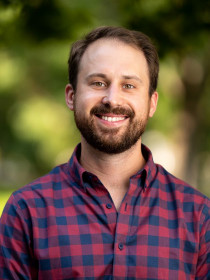
James M. Curry
Connect with James
About James
Curry studies the influence of parties and leaders within the U.S. Congress, and the way information and expertise shape congressional policymaking. Particularly, he investigates how leaders on Capitol Hill, including party leaders and committee chairs, draw on their knowledge and expertise to influence the legislative process, the level of partisan conflict, and the policies ultimately passed into law. In addition, he has conducted research on the way the rules of American legislative elections affect the way those elected act in office. Curry received his PhD in Government & Politics from the University of Maryland, and previously worked in Capitol Hill in the offices of Rep. Dan Lipinski and the House Appropriations Committee.
Contributions
In the News
Publications
Argues how the use of multi-member districts to elect state legislators reduces voter participation in several states by creating confusion and fatigue among voters and reducing the likelihood that they complete their ballots.